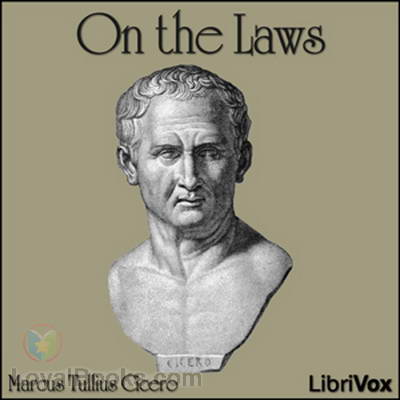On the Laws |
|---|

"On the Laws" by Marcus Tullius Cicero is a thought-provoking and insightful book that delves into the concept of justice, ethics, and the nature of law. Cicero takes the reader on a journey through various philosophical arguments and historical examples to make a compelling case for the importance of upholding the rule of law in society.
The book is well-written and organized, making it easy for readers to follow along and grasp the complex ideas Cicero presents. His arguments are both logical and persuasive, making a strong case for the necessity of laws to maintain order and justice in society.
One of the most intriguing aspects of the book is Cicero's exploration of the relationship between natural law and human law. He argues that laws must align with higher moral principles in order to be just and valid, and that individuals have a duty to obey laws that are in accordance with these principles.
Overall, "On the Laws" is a must-read for anyone interested in philosophy, politics, or ethics. Cicero's insights are still relevant today, and his ideas continue to provoke thought and discussion on the nature of law and justice. Book Description: |
| Genres for this book |
|---|
| Classics (antiquity) |
| Philosophy |
| Politics |
| Non-fiction |
| Links related to this book |
|---|
| Internet Archive e-text |
| Wikipedia - Marcus Tullius Cicero |
| Wikipedia - On the Laws |
| Reviews (Rated: 2 Stars - 1 review) |
|---|
|
Reviewer: RM - September 7, 2013 Subject: Awful reading. The reader sounds like a computer generated voice. He reads with no passion and with such a rigid meter that it sounds almost fake. |